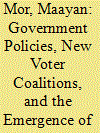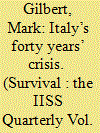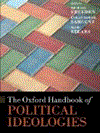| Srl | Item |
| 1 |
ID:
184996


|
|
|
|
|
| Summary/Abstract |
Conventional theories of ethnic politics argue that political entrepreneurs form ethnic parties where there is ethnic diversity. Yet empirical research finds that diversity is a weak predictor for the success of ethnic parties. When does ethnicity become a major element of party competition? Scholars have explained the emergence of an ethnic dimension in party systems as the result of institutions, mass organizations, and elite initiatives. But these factors can evolve in response to an emerging ethnic coalition of voters. The author advances a new theory: ethnic cleavages emerge when voters seek to form a parliamentary opposition to government policies that create grievances along ethnic identities. The theory is tested on rare cases of government policies in Prussia between 1848 and 1874 that aggrieved Catholics but were not based on existing policies or initiated by entrepreneurs to encourage ethnic competition. Using process tracing, case comparisons, and statistical analysis of electoral returns, the author shows that Catholics voted together when aggrieved by policies, regardless of the actions of political entrepreneurs. In contrast, when policies were neutral to Catholics, the Catholic party dissolved.
|
|
|
|
|
|
|
|
|
|
|
|
|
|
|
|
| 2 |
ID:
138602


|
|
|
|
|
| Summary/Abstract |
The era of Silvio Berlusconi is over. Italy will never again be represented on the world stage by an ageing businessman with a turbulent private life, a criminal record and pariah status among other European leaders. Power has passed into the hands of a kinetic young man with a pudding-bowl haircut, Matteo Renzi, whose self-proclaimed mission is to rottamare (junk) the old guard in Italian politics and to revive the country’s institutions and economy.
|
|
|
|
|
|
|
|
|
|
|
|
|
|
|
|
| 3 |
ID:
144313


|
|
|
|
|
| Publication |
Oxford, Oxford University Press, 2015.
|
| Description |
xiii, 736p.pbk
|
| Standard Number |
9780198744337
|
|
|
|
|
|
|
|
|
|
|
|
Copies: C:1/I:0,R:1,Q:0
Circulation
| Accession# | Call# | Current Location | Status | Policy | Location |
| 058614 | 320.5/FRE 058614 | Main | On Shelf | Reference books | |
|
|
|
|
| 4 |
ID:
034393


|
|
|
|
|
| Publication |
Hague, Martinus Nijhoff, 1972.
|
| Description |
351p.Pbk
|
| Standard Number |
9024712815
|
|
|
|
|
|
|
|
|
|
|
|
Copies: C:1/I:0,R:0,Q:0
Circulation
| Accession# | Call# | Current Location | Status | Policy | Location |
| 011655 | 944.0815/RAU 011655 | Main | On Shelf | General | |
|
|
|
|
| 5 |
ID:
082285


|
|
|
| 6 |
ID:
146459


|
|
|
|
|
| Contents |
How do churches influence public policy and why does their influence vary across similarly religious societies? Prevalent accounts focus on the mobilization of voter demand and coalitions with political parties that offer policy concessions in exchange for electoral support. This article argues, by contrast, that such strategies are both risky and costly, and it demonstrates instead the power of direct institutional access for writing legislation, vetting officials, and even running sectors of the state. Such institutional access is available only to churches with high moral authority: those perceived by the public as representing the common good and the national interest. Churches in Christian democracies have gained such moral authority by defending the nation against a foreign regime, state, or colonial power. In short, churches are most influential when they have the high moral authority to obtain direct institutional access—thus avoiding popular backlash against overt and partisan church politicking.
|
|
|
|
|
|
|
|
|
|
|
|
|
|
|
|